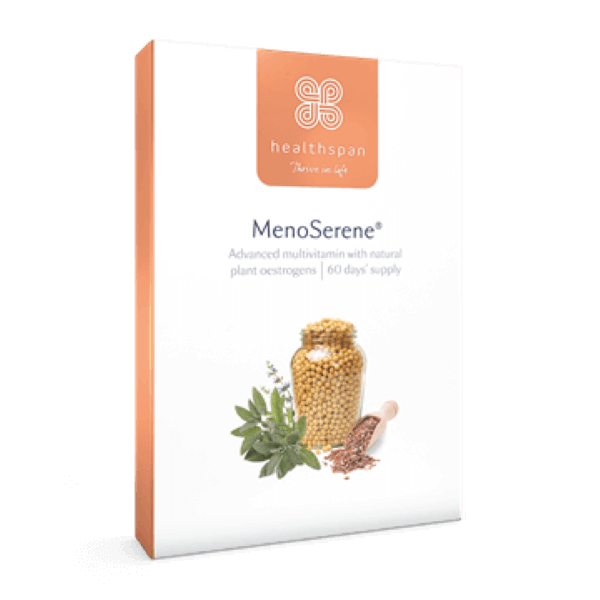Menopause can affect female sexuality and relationships by various means, and sexual problems often occur both during menopause, and with ageing. Sexual problems are estimated to occur in 5% of sexually active women in middle age, yet many women do not disclose the problem.
Despite our society being much more open in discussing sensitive issues, many women are still too embarrassed to seek help when things are not quite right. Although some women do not feel that an active sex life is vital, often quoting that they'd rather have a cup of tea, 84% of women in a recent survey feel that it is important to continue an active sex life into older age.
Sexual problems can occur from lack of interest or desire, decreased arousal, and discomfort. Changes associated with menopause, and changes associated with the ageing process itself rather than hormone changes can all play a part in sexual difficulties.
Factors that particularly affect menopausal women include sleep disturbance leading to tiredness, heavy and irregular periods, tensions with their partner (which then leads to reduced sexual activity often causing more tension), stress over other life events (which often happen around the time of the menopause, such as problems with teenage children, children leaving home, elderly parents, work pressures), menopausal symptoms signifying the ageing process and the need to come to terms with this, and hormonal changes.
Hormones and libido
The hormones oestrogen, progesterone and androgens, are all important in sexual desire and response: both oestrogen and progesterone levels fall during menopause, whilst androgens fall with age, declining particularly after the age of 40 years. The fall in oestrogen may also cause vaginal dryness and discomfort, and this can affect sexual desire. Because of the role of these hormones, some women do benefit from hormone therapy but, for women especially, the other personal and relationship factors are as, if not more, important.
Continued communication with your partner is vital to work through this and find out what is the best option for you. Many women do benefit from some help at this stage, whether it is advice or specific therapy but, with guidance, there is no reason why women can't continue to enjoy an active sex life well into old age. Adding a vaginal lubricator into your routine could help with sexual discomfort.
Understanding oestrogen
The lack of oestrogen causes vaginal dryness and discomfort, due to vaginal tissues becoming thin, less elastic, less well supported and fragile. This is a frequent menopausal problem, yet women often don't report it. A previous Menopause Matters survey showed that more than half (51%) of menopausal and postmenopausal women suffer from bothersome vaginal symptoms, yet the majority of them (79%) had not discussed their symptoms with a healthcare professional.
Almost half of these women (47%) said symptoms were so severe that they affected their sex lives. One quarter even said that they make excuses to avoid having sex with their partner. A more recent survey showed that of women who had noticed reduced libido associated with menopause, more than 8% believed that the vaginal dryness and discomfort was a significant contributory factor.
Treating vaginal dryness
For vaginal dryness, there are treatments available such as vaginal lubricants and moisturisers that can be purchased from pharmacies, and available on prescription. To treat the underlying problem of the effects of lack of oestrogen on the vagina (vaginal atrophy), vaginal oestrogen in the form of a small tablet, cream or vaginal ring is also effective.
Because the oestrogen is given in a small dose and is concentrated in the vaginal tissues, very little, if any, gets into the rest of your body, and so is not likely to be associated with the risks and side effects of HRT. Vaginal oestrogen therefore can be used even if you cannot or are advised not to take HRT, which circulates throughout your body (systemic HRT).
In some women, control of menopausal symptoms by systemic HRT can improve sleep pattern, increase energy levels and reduce distress: changes that can lead to an improvement in libido both directly and indirectly, simply by restoring oestrogen levels. However, some types of HRT can cause the body to produce less testosterone, which is important for libido, mood and energy levels. The tablet form of HRT can have this effect, as can the oral contraceptive pill and thyroxine. One type of tablet HRT that does not have this effect is tibolone, and in fact tibolone may increase testosterone-like activity production.
Tibolone can be considered if your periods have stopped, since it is a 'period-free' preparation. Also, a non-tablet form of HRT, such as a patch or gel, has a lesser effect in reducing testosterone, compared with tablet HRT.
Testosterone replacement therapy
Since testosterone (one of a group of hormones known as androgens, produced both from the adrenal gland and the ovaries) is thought to play an important part in sexual interest and response, some women may benefit from testosterone replacement therapy. There is a gradual decline in androgen production from the age of 40, so by the time you reach 70, your androgen levels are 7% - 8% less than in earlier years. A 50% reduction in testosterone levels is also seen following removal of the ovaries. Symptoms of androgen deficiency include persistent fatigue and low mood, as well as the low libido. Testosterone replacement may be considered in women who have had their ovaries removed, and women on tablet HRT who have symptoms suggestive of testosterone insufficiency and may wish to try a different route, or type of HRT.
Apart from the HRT preparation tibolone, the only other currently available licensed way for women to take testosterone in the UK is by an implant.
The implant is a small pellet placed under the skin of the abdomen every six months. Its use in the UK is currently limited, and only available in a small number of NHS clinics and some private clinics.
A study showed that testosterone gel improved frequency of sexual activity and sexual interest in postmenopausal women taking HRT, but the appropriate dose for women is yet to be determined. Currently there are no licensed testosterone gel preparations in the UK, but testosterone gel licensed for use in men is used for some women under specialist supervision.
Although a change in the type of HRT or, for some women, a form of testosterone along with HRT is worth considering, the other factors affecting libido should not be ignored.
Other factors
Women need to feel secure, loved, wanted, and emotionally close to their partner to be able to fully enjoy sexual relations.
The menopausal changes of weight gain, skin changes, and impact of loss of fertility can all affect self-confidence in a woman, influencing how she feels about herself, her relationship and her sexuality. On the other hand, she may find that menopause has a positive effect on sexual response by signalling the end of heavy and often painful periods, negating the need for contraception and allowing more freedom and time with her partner, especially if children have left home.
Sexual difficulties can also be due to medical problems and medications. Sexual problems affect about 3% of men, with erectile dysfunction (impotence) being the most common problem. Men are often even more reluctant than women to report problems and seek treatment. As difficulties continue, tension builds up, and the problem escalates. Effective treatment is available however, and medical help should be sought sooner rather than later.

MenoSerene
Vitamins, minerals and plant oestrogens to support women through the menopause
- Vitamin B6 to regulate hormonal activity, high dose of vitamin E
- Calcium, magnesium and vitamin D for healthy bones
- Phytoestrogens from soy and omega 3 from flax







